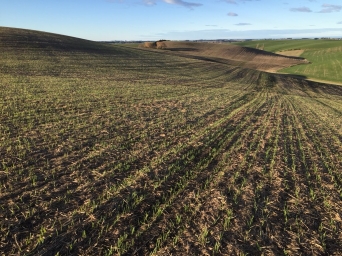UPL’s agri-services arm nurture.farm has announced a program to end stubble burning practices in Punjab and Haryana by replacing the matchstick with a spray service for the PUSA decomposer, a bio-enzyme developed by IARI under the guidance of Director, Dr. AK Singh.
Crop Residue burning (CSB) or burning of agricultural biomass residue has been identified as a major health hazard causing severe pollution & huge nutritional loss and physical health deterioration to the soil.
UPL is the leading member of Crop Care Federation of India (CCFI) as India’s prime corporate to have taken this collaborative step to support Govt initiative against paddy stubble burning.
The bio-enzyme decomposes the stubble within 20-25 days after spraying and turns it into manure, improving soil quality. The company has signed up over 500,000 acres in this program and on-boarded more than 25,000 farmers who will be availing this sustainable agriculture practice free of cost.
“We are excited about the initiative, and we believe this will go a long way in benefiting both the farmers and society-at-large,” said Jai Shroff, Global CEO, UPL Ltd. “Through OpenAg, UPL is creating a network that changes the way a whole industry thinks and works and will help make the agricultural process more sustainable.”
nurture.farm plans to scale up the operations to end stubble burning in the states of Punjab and Haryana in the next three years. The beginning has already shown positive results.
Dhruv Sawhney, COO and Business Head, nurture.farm stated that 75% of Indian farmers are owners of land which span a hectare or less. For them, time and resources are limited, and so they are risk-averse to try new things. They are aware of the negative implications of crop burning, but lack of access to the latest technology and farm mechanisation pushes them to burn the crop. Partnering with IIM Rohtak, UPL has developed an entire ecosystem where the farmers can register for the service via nurture.farm app and avail UPL's large spraying machines to decompose their stubble.
Deepak Shah, Chairman, CCFI was of the view that delay in handling leftover stubble primarily of paddy, directly affects next cropping cycle, which effects farmers yield and ultimately their income. He urged all agri input companies to come forward to facilitate this Govt thrust to avoid pollution and popularise the PUSA bio-decomposer developed by IARI.
Partnering with IIM Rohtak, UPL has developed an entire ecosystem where the farmers can register for the service via nurture.farm app and avail UPL's large spraying machines to decompose their stubble.
“CCFI members who are indigenous manufacturers of agrochemicals have shown interest to popularise this concept and are coming forward as the wheat sowing season approaches. The federation is committed to promote indigenous technology to support Make in India policy towards Atmanirbhar Bharat” said Harish Mehta, Senior Advisor, CCFI.
